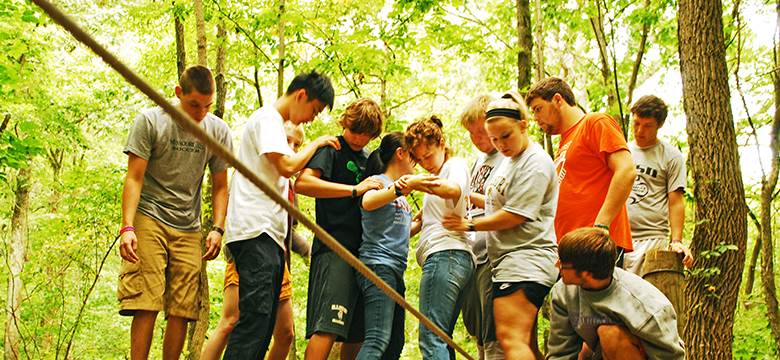 In the fictional novel, "Rash" protagonist Bo Marsten is a teenager in the year 2074, living in the USSA (United Safer States of America). The USSA is a country obsessed with safety and the happiness of its citizens. Bo is considered a trouble maker, ticketed for not wearing his walking helmet and eventually imprisoned (in Canada) for almost getting into a fight with a classmate.
In the fictional novel, "Rash" protagonist Bo Marsten is a teenager in the year 2074, living in the USSA (United Safer States of America). The USSA is a country obsessed with safety and the happiness of its citizens. Bo is considered a trouble maker, ticketed for not wearing his walking helmet and eventually imprisoned (in Canada) for almost getting into a fight with a classmate.
While Rash takes the idea of a "bubble-wrapped" society to a dystopic conclusion, I regularly observe an aversion by adults to allow students to struggle on Lake Williamson's challenge courses. Some parents and group leaders tell me they NEED all their students to successfully go through the high ropes course. Other adults become frustrated when students cannot figure out a low ropes initiatives challenge. They quickly take it upon themselves to start directing the students, or they demand I give the final solution to the youth so they feel "good" about their efforts. However, feeling good does not create learning in youth or adults. It is through our efforts that education takes place, and, in that context, failure is a powerful tool for learning.
"Failure educates." –Charles Gregg
For example, not too long ago I facilitated a group of new student-leaders from an area college. The group came in upbeat and positive. The first activity I gave them was to balance the entire team on a giant teeter-totter. The solution escaped them, and individual members slowly settled into power struggle, bickering, and/or detachment. When the activity concluded without success, feelings were hurt, frustrations were high, and the upbeat attitude the group started with was replaced with the realization that being on a student-leadership team would be hard.
It would have been easy for me to give the group the solution, to allow them to "succeed," but the opportunity for learning would have been lost. In this case, the group had an opportunity to discuss how they managed conflict and recognize areas of team work that needed to be addressed. Failure in this one activity provided insight into what would be needed for further success as a group.
As an adult, look at some of the biggest mistakes you have made in your life. As unpleasant as they were at the time, I imagine you can correlate many of them to some of your greatest moments of learning. Without those "failures," later moments of success would never have occurred. For that reason, it is often in a youth's best interest to experience failure.
I frequently encourage my facilitating staff to try new things, and if they fail, to "fail spectacularly." Obviously, in some contexts the consequences of failure are greater than in others. However, the opportunity to learn from any failure remains. So take off your Walking Helmet, get out there, and fail!